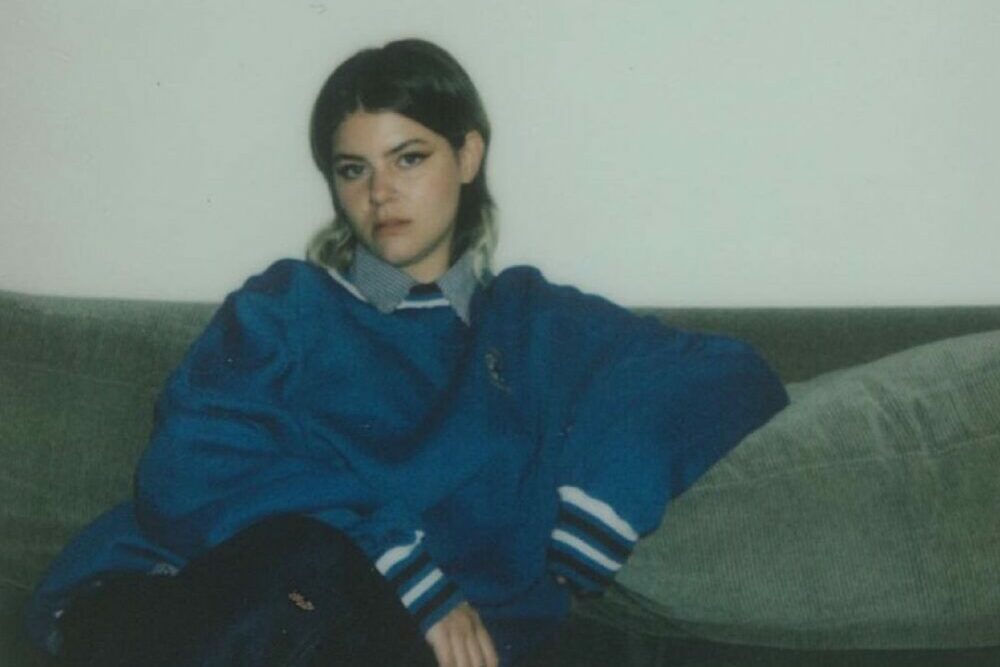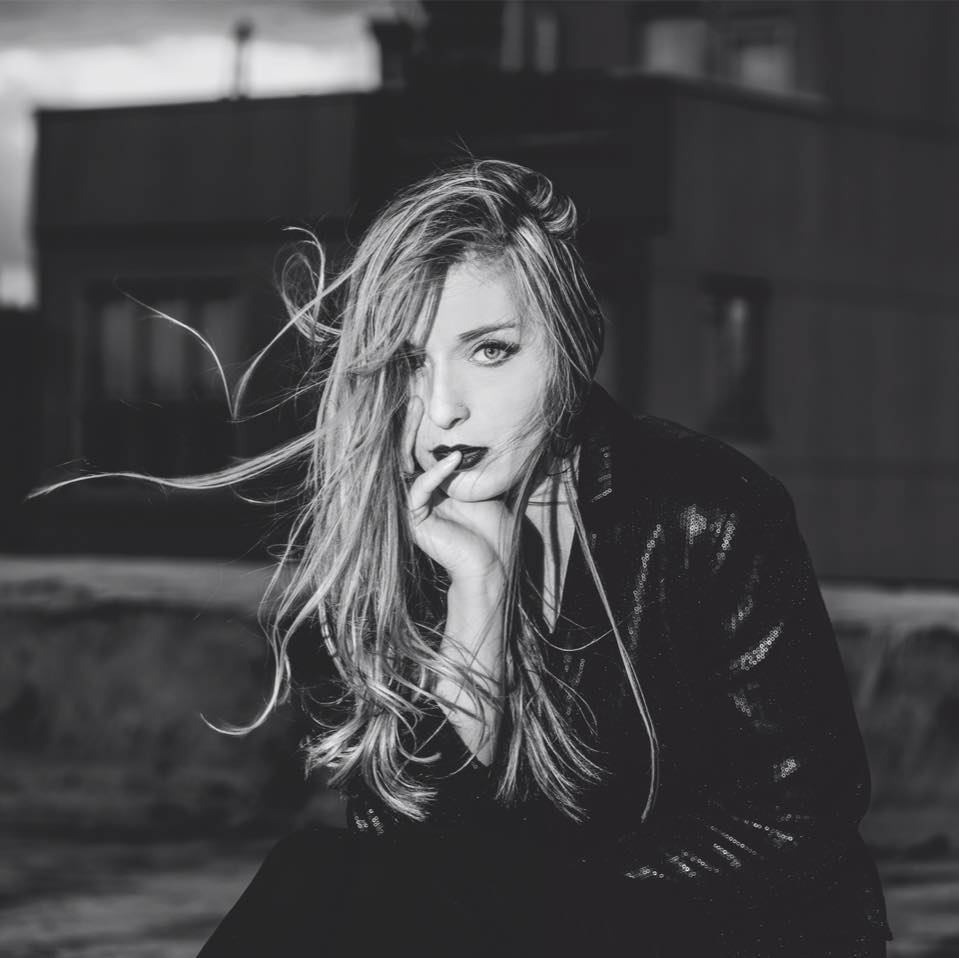INTERVIEW: Johanna Warren Comes into Her Power with Chaotic Good


When Johanna Warren was twelve or thirteen, she recalls thinking that if she wanted to be a true artist, she would have to fuck up her life. Her musical idols – Elliott Smith, Kurt Cobain, Nick Drake – all died as tortured young poets. Warren hadn’t sung in front of anyone since she was a child, writing songs with her little brother as their alter egos, Horsey & Joe. Over the next several years, she’d throw herself first into musical theater, combating crippling shyness to play the parts she’d immediately regretted auditioning for, before preforming jokey songs at open mic nights about surviving apocalyptic floods by taking refuge in the Loch Ness monster’s vagina. It wasn’t until years later, in a grimy punk house basement, that someone took her seriously; even then, she felt a dark pull toward misery and misfortune. “I wanted to be a great artist, so I had to open a chaotic portal to invite in a lot of suffering because that’s where great art comes from,” Warren says. “I think it’s a really grave miscalculation that we’re encouraged to make. I can’t help but feel that there’s some kind of intentionality there, on behalf of some dark, oppressive forces that want us to dim our light and die young and never thrive.”
Fast forward about a decade, and Johanna Warren found herself recording her fourth solo album, Chaotic Good, at Elliott Smith’s New Monkey Studio. It wasn’t the only place she recorded – what started out as angry acoustic demos in her Portland garage transformed over the course of touring behind her 2018 self-released double album, Gemini, as folks she met on the road offered her free studio time from coast to coast. But New Monkey was a significant space for Warren. “Right when I was starting to look for places to record, the owner invited me to have a free day there. It’s all functional as a recording studio, but they have done a really respectful job of preserving things more or less as they were when he was there – it felt like a shrine as much as a studio,” Warren says. “That was so meaningful and that was really the beginning of feeling like alright, I’m making a record. And it felt like it had kind of [Smith’s] blessing. He’s sort of my patron saint of songwriting. I feel like he gave me permission to make a record like this, where it doesn’t have to fit into one neat little genre box, it can just be an expression of my feelings and my own inner hypocrisies and self contradictions.”
Also of particular relevance was the time she spent at the Relic Room in Manhattan, recording with her old bandmates in Sticklips, Chris St. Hilaire and Jim Bertini. Their band had fallen apart in 2012, following the death of Sticklips’ leader, Jonathan “JP” Nocera. JP was the one who, all those years ago, had sat Warren down and made her play every song she’d ever written, recognizing in her something she couldn’t yet see in herself. “He wanted us to keep going with it, but honestly he was the glue that held it all together,” Warren recalls. “I was not capable of keeping it together after he was gone because I didn’t know myself enough musically or emotionally. I wasn’t confident enough in my own ideas because the only music I had really recorded or produced was with them, and they were all slightly older men. At the time I was all too happy to let them take the reins. I was angry about it but didn’t even know that there was another way. My frustrations with that were building but I didn’t have the emotional interpersonal skills to communicate any of that so it just exploded.”
Despite the buzz around the band’s two LPs, 2009’s It Is Like a Horse. It Is Not Like Two Foxes. and 2012’s more minimally-named Zemi, Warren had decided to go it alone, and moved to the West Coast, touring with the likes of Iron & Wine and Julie Byrne. “It was definitely kind of traumatic because I felt like I’d always wanted to be in a great band – I was obsessed with The Beatles and Radiohead. Right as things started to really gel, it all fell apart. And I was so young at the time, it was really formative. I’m just now starting to open the door to collaborating with other people again, cause I’ve been licking that wound for the last decade.” Her first solo album, Fates, arrived in 2013, followed by numun (pronounced “new moon”) in 2015. After recording both Gemini records, but unable to find a label that would release them, Warren formed Spirit House Records from the ashes of a label that JP had gifted her upon his passing. Over time, it has evolved into a collective of experimental folk artists, mostly in and around the Portland scene. Later, Sadie Dupuis of Sad13 and Speedy Ortiz would re-release the Gemini records on her Carpark imprint Wax Nine, as well as put out Chaotic Good.
In the process of recording Chaotic Good, Warren says she looked to that younger version of herself for gems of wisdom and truth that had gotten buried and forgotten over time. “That’s sort of a theme of the album – burying the dream that never came true, and the presence of death and the spirits of the dead, but then the rebirth and new life that springs from the ruins of whatever you’ve buried and grieved,” Warren explains. “This last couple years have been all about a kind of return. It has led to me stepping into my own power, and then also remembering: I have a band – I left them in New York ten years ago. I just need to hit them up and make some amends.” Warren did just that, reuniting with St. Hilaire and Bertini to add drums, synth, and bass to her demos. “It was so healing for everybody to play together again in a completely different context, and for me to be able to assert myself and hold my own. It felt so satisfying to pick up that loose thread and weave it back into the tapestry.”
It was validating, too, to be in control of that process – the band added their parts over the vocals she’d recorded in Portland, as opposed to Warren adding her parts over Sticklips tracks. Back then, Warren says, “I was like the icing on the cake – even though it had been my song that was the foundation around which all of the other instrumentation had been built, I always felt like my stuff was just an afterthought. I didn’t even have the vocabulary to say I can’t hear myself, it doesn’t sound like me, it doesn’t sound like my song anymore. So to work this way with the same people, but have my parts actually be the backbone of the whole recorded construction was really cool. It was such an amazing testament to the collective work we’ve all been doing in the last ten years around gender and power and breaking down these oppressive hierarchical structures.”
The metaphor of excavating her old selves pops up in two videos for the album’s early singles, the graceful stop-motion of “Bed of Nails” and “Only The Truth,” which posits Warren as a Druid resurrected in present-day Los Angeles, still able to find magic in a neon-lit roller rink. “It was so fun to play that character for a couple days, cause I realized, I didn’t really even have to act – this is how I’ve always felt moving through the world, especially places like LA. So much of her world has been lost and destroyed, but magic still exists in everything, and that’s kind of what the song is about too,” she says, before quoting a lyric from the song: “I see light everywhere I go, I see the love in all of you.”
Warren, for what it’s worth, has long identified as a witch “as kind of an eco-feminist fuck you to the patriarchy,” though she doesn’t rely on ritual these days as much as she once did. She practices plant medicine and reiki, and her spiritual beliefs are subtly integrated throughout the album. “What you call God, I call the mysteries of the universe/What difference does it really make after all?” she asks on “Rose Potion,” a song that hints at her experience weaning herself off of pharmaceuticals prescribed for chronic illnesses that only worsened until she was able to find natural remedies and process past trauma. Piano-driven, woodwind-embellished album closer “Bones of Abandoned Futures” describes, in essence, a binding ceremony, in which Warren releases herself from the spells of the past: “Expell from my body the putrid mess inside me and call back my magic to me,” she sings, describing the process as “killing” and “slaughtering” the darkness before she comes to the final, poignant lines, “The time has come for stillness and mindful cultivation of light/Removing the sting and the sorrows of losing by singing with all of my might.” In that way, Chaotic Good is medicine all on its own – the album sees Warren confronting abusers past and present, personal and political, and stepping into her own power and anger as a woman.
“A big part of it [was] just recognizing that I have always had anger in me, inviting that energy into the room, learning how to scream, and giving myself space to do that vocally for the first time,” says Warren, who is at her most brazen on “Twisted,” a seething send-off that sees the singer posit herself as a warrior broken by loving someone incapable of empathy or understanding. “In my previous work I tried to repress it, because I thought it was ugly and scary and bad. I’d been limiting myself to this really pretty, clean, crystalline quality that gets praised a lot. But [for] this record and this time in my life, I’ve given up on prettiness and just gotten more interested in being whole, embracing all parts of myself and not trying to cut things out cause I don’t think they’re pretty.”
Parts of Chaotic Good still rely on the haunting beauty of Warren’s voice – like hushed ballad “Hole in the Wall,” rambling confessional “Every Death,” or wistful, warm acoustic number “Thru Yr Teeth” – but juxtapose them with with the same bitter emotions. As Warren lived her nomadic lifestyle, touring behind Gemini and snatching up time to experiment with newer songs in whatever studio spaces she could, the instrumentation on Chaotic Good grew more robust than any of her previous work, drawing that bitterness out sonically on songs like “Faking Amnesia” and “Part of It,” on which she sings “This is a time for me, everything else can wait/Whatever is meant to be will be and everything else can fall away.”
Indeed, Warren herself is the centerpiece of Chaotic Good, even as springy bass and shuffling drums give the tracks more punk rock energy than the pristine folk she’d cultivated in the past. “I was the only consistent player throughout – it was just me and my guitar and my traveling hard drive flitting around the whole country and working with different people in different places,” Warren says, noting that such an usual way of working was incredibly freeing in that it allowed her to explore different elements and ideas. “It was re-enlivening to get so many pairs of fresh ears on it, a day at a time. It was such a unique way of working. I’m not in any rush to go back to doing it the other way because it gave me so much time and space to reflect and change things up with low stakes.”
“That’s part of the namesake – the chaotic nature of recording it,” she continues. “I was like some little pollinating insect flying around flower to flower and getting the nectar of each moment in time in space,” she says. “I’ve never worked like that before… I feel like it translates to me synaestehtically; when I listen to the record all my senses are flooded with this feeling of variety. I feel like I see rainbows when I listen to it because there are so many moments in time, so many places, so many people, it feels like a travelogue of the last couple years that have been so beautiful really. So chaotic, but so good.”
More than any other song on the album, “Only The Truth” encapsulates Warren’s tumultuous journey, not only as a singer- songwriter, but as human being drawn into a series of co-dependent relationships. As the track builds, she calls out her past reliance on creating songs out of personal tragedy, describing “the sacred well of pain that I’ve returned to time and time again to fill my vessels with the nectar torture poison that my thirsty muse took a liking to.”
“That is to me, an encapsulation of a big over-arching process that I’ve been really invested in personally,” Warren admits. “I’ve taken a real stance against that in myself and in the world around me. It is possible to be happy and make great art and thrive and be healthy and live to a hundred twenty. And I want to do it. I want to prove to myself that that’s possible.”
Warren is currently holed up Wales, following the postponement of a European tour in support of Chaotic Good; she’s planting a garden, foraging wild foods and setting up a recording studio in a spare room, realizing that she needs this time to heal the body she’s put through years of touring. “I feel really happy right now, and honestly, I haven’t had that burning desire to create that I did when I was a tortured 20-something, when that was my only outlet,” she says. “Now, I feel really peaceful when I just wake up and walk outside and plant my beans. I don’t feel the urgency that I did, but I feel that I am making good work that I stand behind that is serving a purpose. And I feel very invested in dismantling that programming that has been running itself out in my mind for a long time and creating and alternative.”
Follow Johanna Warren on Facebook for ongoing updates.




